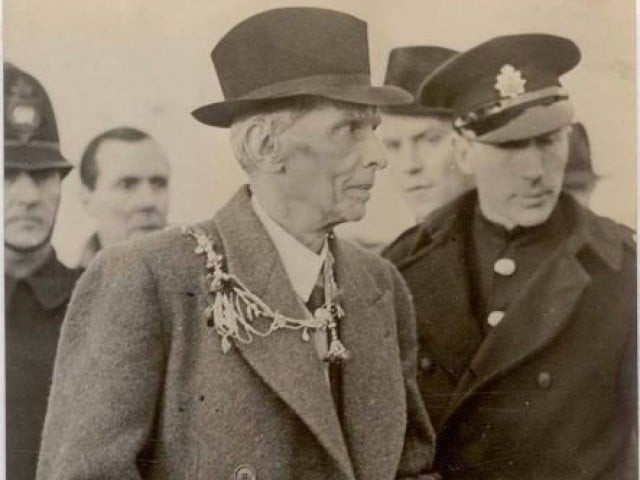Poverty alleviation: Jinnah’s vision of welfare state highlighted
Jinnah opposed capitalism and wanted to establish a welfare state

Jinnah opposed capitalism and wanted to establish a welfare state. PHOTO COURTESY ARCHIVE 150
Speakers at a seminar called for implementing Quaid’s vision of welfare state based on social justice and equality, said a press release.
“Jinnah opposed capitalism and wanted to establish a welfare state. Ironically our rulers deviated from his vision and introduced an exploitative economic system which is still based on capitalism,” former police chief Saeedur Rae said while addressing a seminar on ‘Jinnah’s Vision of Poverty Alleviation’ on Monday.
The event was organised by Jinnah-Iqbal Thinkers Forum in coordination with Rawalpindi Arts Council, in connection with 69th Independence Day celebrations.
Bad governance and injustices have plagued the society and successive governments have failed to follow and implement Jinnah’s vision.
Quaid-i-Azam had made all out struggle to make Pakistan a Muslim welfare state, he added
Prof Shahid Nawaz of Bahria University said provision of education, health facilities, justice and security to citizens is state’s responsibility and pre-requisite for a welfare state as envisaged by Quaid-i-Azam.
He remarked that Jinnah believed in political struggle and was able to create Pakistan against heavy odds which we lack now in every department.
The forum’s Chairman Rana Abdul Baqi said Muslim League Planning Committee, was tasked to frame economic system for the new state based on Islamic principles instead of capitalist system.
He also referred to Quaid-i-Azam April 1943 and November 1944 addresses in which he categorically announced that the new Muslim state will be a true welfare state, based on principles of Islamic social justice with equal rights for all citizens.
AJK Minister for Social Welfare and Women Affairs Farzana Yaqub also referred to plight of Muslims in Indian administered Kashmir.
Ghulam Nabi Butt, a Kashmiri intellectual presented a resolution on plight of people of Kashmir who have been subjected to repression by Indian army.
Published in The Express Tribune, August 18th, 2015.



















COMMENTS
Comments are moderated and generally will be posted if they are on-topic and not abusive.
For more information, please see our Comments FAQ